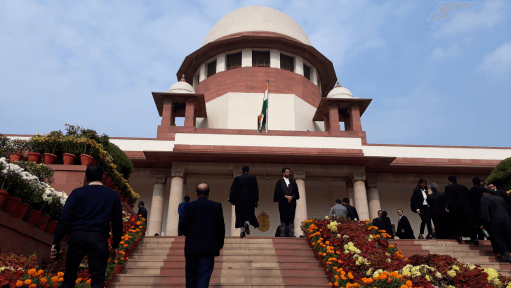
Lawyers Cannot be Sued for Service Deficiency: India SC Rules – What’s in UAE Law?
Services rendered by advocates come under contract of personal service: Indian Supreme Court
The Supreme Court of India recently ruled that the services rendered by advocates fall under a "contract of personal service," meaning they are excluded from the Consumer Protection Act, 2019.
This decision was made by a bench of Hon’ble Justices Bela M. Trivedi and Pankaj Mithal, who emphasised that the legal profession is unique and cannot be equated with other professions or businesses that the Consumer Protection Act covers. The ruling clarifies that complaints alleging "deficiency in service" against advocates cannot be maintained under the Consumer Protection Act, 2019.
The court highlighted that the relationship between advocates and their clients involves fiduciary duties and direct control by the client over the advocate's actions, distinguishing it from typical service contracts.
This decision overturned a 2007 ruling by the National Consumer Disputes Redressal Commission (NCDRC), which had allowed such complaints against advocates.
“The legal profession is sui generis (unique in nature) and cannot be compared with any other profession.
The service engaged or utilised from an advocate falls under a contract of personal service, and therefore will fall within the exclusionary part of the definition of “service” contained in Section 2 (42) of the Consumer Protection Act, 2019,” a Bench headed by Justice Bela M. Trivedi said, terming the advocates’ responsibility “onerous”.
The Bench said an advocate was the only link between the court and the client and was expected to follow his client’s instructions rather than substitute his (client’s) judgment. Justice Mithal, who delivered a separate concurring judgment, said, “The legislature inIndia as in some other countries had not intended to include the services rendered by professionals, especially lawyers, to their client within the purview of the Consumer Protection Act, 1986, and re-enacted in 2019.”
“One should also not lose sight of the fact that the other object of the Act was to provide consumers timely and effective administration and settlement of their disputes.
If the services provided by all professionals are also brought within the purview of the Act, there will be a floodgate of litigations in commissions/forums established under the Act,” the Bench noted.
Advocates were generally perceived to be their client’s agents and owed fiduciary duties to their clients who exercised direct control over their advocates rendering legal professional services, it said.
The Advocates Act, 1961
In India, the regulation and governance of the legal profession are primarily overseen by the Advocates Act, 1961. This pivotal legislation lays down comprehensive standards of professional conduct and etiquette, as stipulated by the Bar Council of India under Section 49(1)(c).
According to these provisions, clients who have grievances regarding misconduct can approach the State Bar Council where the concerned advocate is enrolled to file a complaint.
These Bar Councils are not only vigilant but also sensitive in handling cases that involve the legal profession.
Moreover, the Court aptly distinguished between the legal and medical professions in this context. Unlike the medical profession, the legal profession lacks a universal standard of care or an objective test to adjudicate issues of professional duty.
This absence of a definitive standard is due to the inherent unpredictability in legal cases, where outcomes are significantly influenced by the opposing party’s actions and legal interpretations.
The Hon’ble Supreme Court’s decision brings closure to a long-pending issue that has lingered for over a decade. The judgment acknowledges that there is always a risk of imperfection in case determinations, often due to factors beyond the advocate’s control.
The legal system aims to provide the best and safest method of adjudication, balancing the necessity of human fallibility. The Court’s judgment reinforces the need for advocates to perform their duties without fear of undue repercussions.
The immunity granted to advocates is seen as a necessary measure to ensure that they can operate within the legal framework without the constant threat of liability.
This protection is crucial for the effective functioning of the legal profession, as recognised by the Supreme Court in its recent ruling.
Consumer Protection Context
In the context of consumer protection, these legal provisions underscore the UAE’s commitment to safeguarding the rights and well-being of its residents.
The rigorous standards of care and accountability mandated by the law ensure that consumers and businesses alike can operate within a framework of fairness and responsibility.
The legal landscape in the UAE thus offers robust mechanisms for addressing grievances and seeking redress, reinforcing the importance of legal recourse and professional guidance in protecting one’s rights and interests.
For any enquiries or information, contact ask@tlr.ae or call us on +971 52 644 3004. Follow The Law Reporters on WhatsApp Channels.